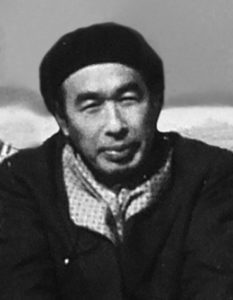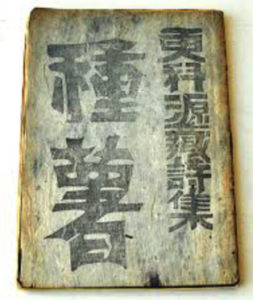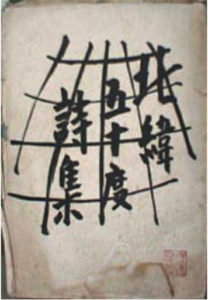 Genzō Sarashina was born in eastern Hokkaido in 1904, the son of first-generation Japanese settlers. An anarchist, and a politically and socially engaged poet in his youth, he was a vocal critic of the Japanese government’s policy of assimilation of the indigenous Ainu Community. He worked as a farmer and, until he was dismissed for refusing to teach the government-prescribed history syllabus, as a teacher in an elementary school most of whose pupils were Ainu children. His first poetry collection, Taneimo (Seed Potatoes) was published in 1930 and addressed in vigorous and colloquial language the plight of both poor migrant settlers and Ainu people. After the war, he continued to publish poetry and became a noted expert on Ainu culture. He died in 1985.
Genzō Sarashina was born in eastern Hokkaido in 1904, the son of first-generation Japanese settlers. An anarchist, and a politically and socially engaged poet in his youth, he was a vocal critic of the Japanese government’s policy of assimilation of the indigenous Ainu Community. He worked as a farmer and, until he was dismissed for refusing to teach the government-prescribed history syllabus, as a teacher in an elementary school most of whose pupils were Ainu children. His first poetry collection, Taneimo (Seed Potatoes) was published in 1930 and addressed in vigorous and colloquial language the plight of both poor migrant settlers and Ainu people. After the war, he continued to publish poetry and became a noted expert on Ainu culture. He died in 1985.
Below: Cover of Taneimo (left); cover of Hokui Gojūdo (Latitude Fifty Degrees North), the magazine edited by Sarashina in the early 1930s (right).

